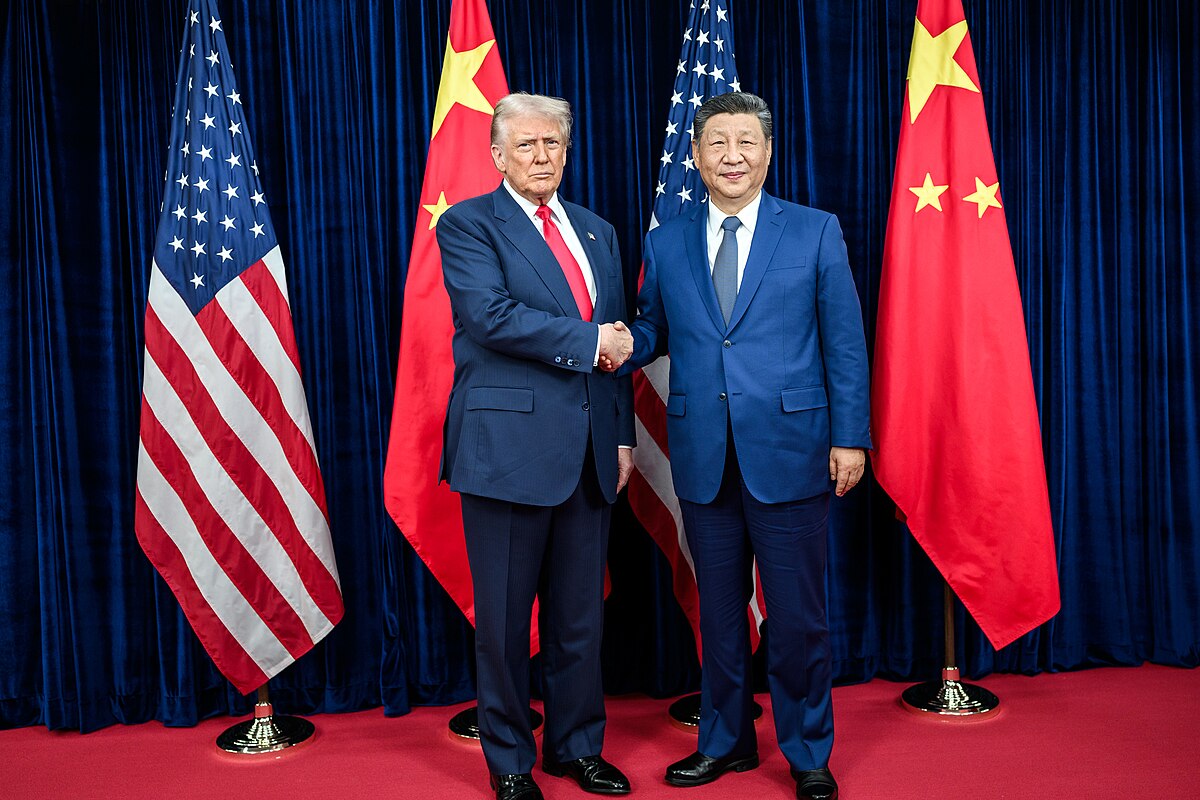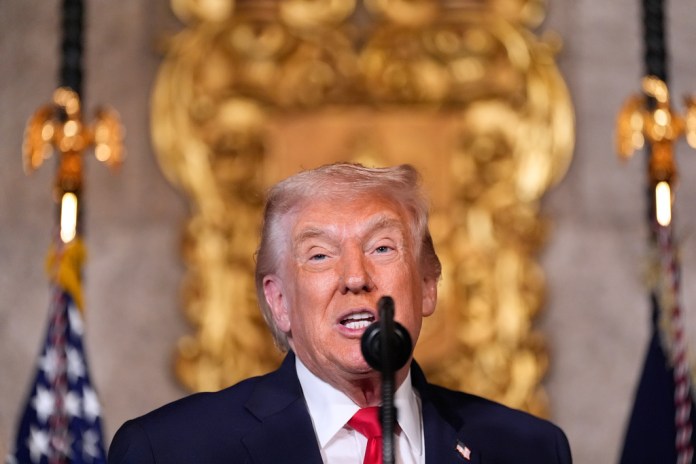Michael Goodwin: The Media’s Road to Ruin Its Own Credibility in War on Trump
Seven years after the majority of media dropped fairness standards during a Trump victory stampede, it is well known that these outlets can’t be trusted to deliver accurate news reports. Rather than perform the journalists’ duty of informing the public of news, many of today’s reporters and editors concoct narratives about events that consistently align with the agenda of the Democratic Party.
The nation is currently roiled by two major developments. The first is an increase in polarization which deeply divides voters, leaving government unable to find solutions to basic problems.
The second reason is that Americans are losing faith in all institutions, even those in government, is mistrust of media.
Even the military which was once above the political fray is experiencing a decline in public trust. This increases the risk that America will be heading toward another civil war and is more susceptible to foreign adversaries.
This moment of danger is crucial to understanding the significance of the new book about how the media lost its way in the fight against Trump. Veteran investigative journalist Jeff Gerth follows the advice to tell readers what actually happened, rather than just telling them.
His thorough dissection of the Columbia Journalism Review This case study reveals in detail where Big Media, particularly The New York Times, committed serious errors in reporting on the Russian collusion story.
All the major mistakes were made in the same direction, naturally. Many, including the suggestion that Trump and others committed acts of treason have not been corrected, despite being proved false.
Times’ stubborn resolve
Gerth wrote that the Gray Lady ignores his repeated questions. obvious inaccuracies With broad statements to the effect “we stand by our reporting.”
Gerth actually cites a mountain of exaggerations and mistakes that is so huge, it got me thinking. “Scoop,” Evelyn Waugh’s satirical novel about shoddy journalism.
Similar to the 1938 book, intense competition for the big story resulted again in sensational claims that were not supported by facts.
Gerth said in an interview that this isn’t an accident. He also stated that certain people from the Times had been there as early as 2008. “thought this was another Watergate and the paper was again getting beaten by The Washington Post.”
It is not a new subject for him. Many of us have written extensively on the shameful media performance that began during the 2016 campaign, and continues. Now we know that the Trump campaign’s first coverage was not an isolated incident. The lack of facts and fairness unleashed an insatiable thirst for ideological combat.
Nearly every story in many outlets these days revolves around race, climate, transgenders or some other -ism that demands instant conformity with the far- left’s latest hobby horse. The media are acting as a battering ram against American culture and history, with law enforcement, First Amendment and nuclear families under attack.
Gerth’s work stands out as the definitive account of the origin of this modern nightmare and is uniquely valuable because he builds a brick-by-brick case. It takes a lot of effort to read the multi-part, 26,000-word document, but it is well worth the effort.
His organization and precision allowed him to maintain a steady focus throughout reams upon reams and reams of articles and interviews. They would all be found guilty if this were a trial.
Some of his gems have been published in wider circulation. His interview with Bob Woodward of The Washington Post resurrected Woodward’s forgotten 2017 statement that the infamous Steele dossier Was a “garbage document.”

Gerth was informed by Woodward that there was an a “lack of curiosity on the part of the people at the [Washington] Post” Concerning his criticism, he believed that readers were “cheated” Russiagate has received poor coverage
Gerth’s numbers are worth repeating. The Times, a dependent on anonymous sources, used variations a “person familiar with” more than 1,000 times to shield its sources’ identity.
Showing how the wall-to-wall coverage consumed the nation, Gerth reports there were an astonishing 533,000 articles published about Russia and Trump or special counsel Robert Mueller in the 22 months of Mueller’s probe. NewsWhip, a media analytics firm, reported that the articles had led to 245,000,000 interactions on social media.
He focuses large portions of his article on several articles from the Times or Washington Post, which provide a framework for his findings.
These papers are fair game due to their influence and large readership, as well as the Pulitzer Prize they shared for reporting on the collusion story in 2018.
The Pulitzer citation said the papers’ work “dramatically furthered the nation’s understanding of Russian interference in the 2016 presidential election and its connections to the Trump campaign, the President-elect’s transition team and his eventual administration.”
The exposé that wasn’t
In reality, the totality of the newspapers’ work furthered confusion and misunderstanding and several cited stories have been discredited. Two of the 10 articles submitted by the Times focused on Donald Trump Jr.’s 2016 meeting with others from the Campaign had with a Russian lawyer.

The meeting was shown as a “meeting” for weeks. “gotcha” Moment, but the whole affair turned out to be much ado over very little. But the Times and Pulitzers didn’t acknowledge the claims.
Gerth interviewed Trump twice. Trump demanded that the Pulitzer board cancel the prize. Gerth sued after it refused.
Gerth points out that the board did disclose it had ordered two more “independent” Review of the 2018 awards and both were found “no passages or headlines, contentions or assertions in any of the winning submissions were discredited by facts that emerged subsequent to the conferral of the prizes,” These are the awards “stand.”
He also stated that the board didn’t reveal the names of its reviewers or release any work product other than the conclusion.
Media transparency: So much!
The Times was also criticised by the paper’s staff. As Gerth recounts, then-top editor Dean Baquet was blasted by the paper’s then-public editor, Liz Spayd. Gerth wrote that Spayd in an email to her, said that “complained that the Times was operating under different standards at different times.”
One article she spoke out about was before the election. “downplayed” Because the paper “didn’t know whether the allegations held up.” However, she believed that it was possible to win the election. “the Times produced a steady stream of stories about whether Trump conspired with Russians to win the election without knowing whether the allegation was actually true.”
The headline of the article was: “Trump Aides Had Contacts With Russian Intelligence.”
Spayd’s point about confusing caveats is accurate. Despite the headline sensation, the story contains the following line: “Law enforcement officials did not say to what extent the contacts might have been about business” Instead of the election. Another line is: “It is also unclear whether the conversations had anything to do with Mr. Trump himself.”
All key sources were, naturally, anonymous. However, Jim Comey, the FBI’s then-head, told a Senate hearing that the story was true. “in the main, it was not true.” Questioned under oath whether it was “almost entirely wrong,” Comey said yes.
Spayd was forced to quit and her job was terminated.
Gerth cites Peter Strzok as another example. He was a former FBI agent and is an anonymous source to the Times. Strzok sent emails that revealed his hatred for Trump and stated that he would not allow him to become president. “We’ll stop it,” he also turned down an offer to join Mueller’s team. Strzok explained that this was because he had been offered to join Mueller’s team. “there’s no big there, there.”

Gerth writes that Strzok’s message, when it was revealed in 2018, “was cited dozens of times in news stories, including the lead of an article in The Wall Street Journal and further down in a piece by The Washington Post. The Times, however, did not mention the message in a story — that day, or in the coming years.”
That was typical of a flaw he finds — the frequent refusal of the Times to include information that would undercut its slant.
Gerth has a great report about the ways Hillary Clinton’s team spread false information to the FBI, media and other outlets about Trump and Russia. But I believe that Gerth should have given more emphasis on her role due to its importance.
Moreover, she has never fully accepted Trump’s victory as legitimate, a factor in the vast majority of Democrats continuing to believe Trump did not deserve to be president. This sentiment is a major reason for polarization. It feeds into a wide support for the prosecution of Trump’s former president over any left-leaning probes can come up with.
Gerth and me were coworkers at the Times many years ago, but we didn’t know each other much because Gerth was mainly in Washington and my was in New York. We have talked several times in recent years and share a fondness for the high standards of fairness required of Times reporters in those days and lament the paper’s partisan turn.
He, too, believes journalism’s “declining credibility” Political polarization and the resulting political chaos are “intertwined.”
He makes a smart suggestion in urging the Times and others to do post-mortems on their flawed coverage and cites as a model the paper’s probe into how it came to wrongly conclude Saddam Hussein had nuclear weapons in the run-up to the 2003 invasion of Iraq.
For now, he writes that journalism’s missions of “informing the public and holding powerful interests accountable, have been undermined by the erosion of journalistic norms and the media’s own lack of transparency about its work.”
All the best.
" Conservative News Daily does not always share or support the views and opinions expressed here; they are just those of the writer."





